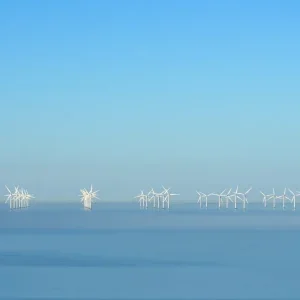WAPDA Chairman Shakeel Durrani said that about 1,000 MW would be added to Tarbela by installing new turbines on one of its tunnels.
“It is imperative for Pakistan to exploit its hydro-electric power generation potential as it is the cheapest source of power. WAPDA has speeded up this process which will go a long way in bringing cost of electricity to a reasonable level.”
Durrani hoped that the hydro-electric generation, along with the exploitation of coal potential, would substantially reduce dependence on gas and furnace oil and bring down power generation cost.
“Arranging finances for hydro-electric generation is relatively easy as multilateral agencies give positive signals to hydro-electric projects because they are environment-friendly and commercially viable. Investment in these projects can be recovered in a short period,” Durrani said.
Durrani said that the financial resources worth $2.1 billion for the Neelum-Jhelum hydropower project had been arranged. WAPDA would generate $1 billion from PKR0.1 per unit surcharge on consumers. The surcharge has been has been allowed to the WAPDA for seven years. Besides that, $750 million financing has been promised by the Islamic Development Bank, Kuwait, Saudi Arabia and Abu Dhabi funds and the Organization of Petroleum Exporting Countries. China would cater to the balance of $448 million in the form of credit.
Durrani also said that a residential colony and offices for the contractor and consultants of Neelum-Jhelum project were almost complete, adding work on two tunnels had started. “The Chinese are also imparting on-job training for constructing tunnels to Pakistani engineers.”
Diamer-Basha dam required $11.3 billion for construction, including $3.5 billion mark-up which would accumulate during the construction of the project. The amount would be payable in installments after the dam became operational.
The payments would pose no problem as the dam would generate its own resources. “Actual amount needed to complete the dam is $8 billion.”
The WAPDA chairman said the Asian Development Bank had agreed in principle to be the major financier of the project, adding the Islamic Development Bank and financial institutions in the Middle East had shown interest to provide the balance amount. Pakistan government and WAPDA, he added, would provide funds worth $1 billion for land acquisition, establishment of nine model villages for displaced people and for construction of new highways as some part of the present highway would come under water. Moreover, $3 billion would be arranged as supplier credit.
“The response of financiers of hydro-electric projects is encouraging.”
WAPDA was undertaking one mega hydro-electric project every year, Durrani said, adding work on Neelum-Jhelum project started in 2008.
Construction work on Basha dam would begin in 2009 while Tarbela extension project would start in 2010.






